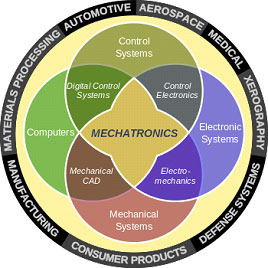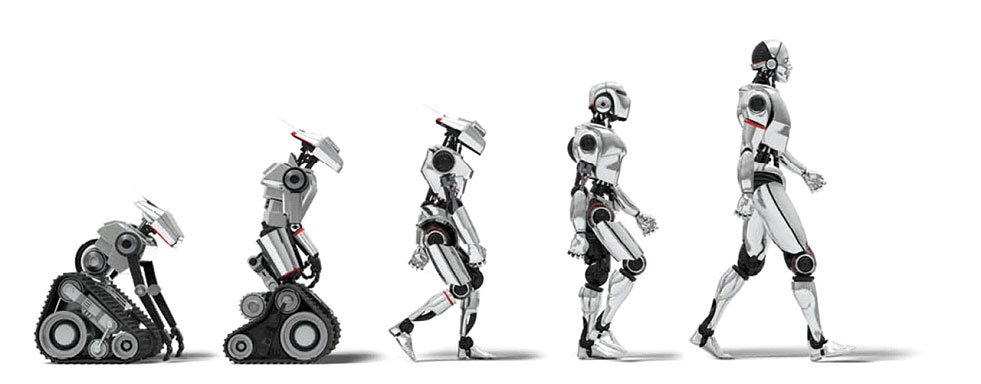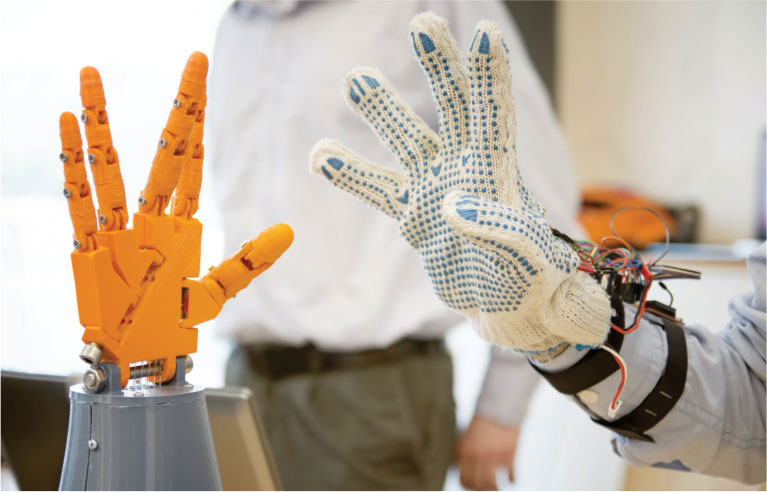The unprecedented pace of technological advancement has necessitated to transform the way we think about our careers and lives. Boundaries between disciplines have become so obscure that it has paved way towards implementation of newer multidisciplinary fields of study such as mechatronics, industrial automation, biotechnology and many others. The possible reasons for these diversely oriented areas being included into the mainstream are possibly due to several reasons like:
- Manufacturing processes across industries have become exceedingly complex and advanced thus; they require precision and a highly skilled workforce at every level which as a result have led to advancements in robotics, automation, control systems and the application of cutting-edge software and hardware to boost output.
- Multidisciplinary engineering fields such as mechatronics combine engineering specialities such as robotics, computer science, product design, control systems, electronics and telecommunication with mechanical engineering—helping engineers to develop solutions and technologies that help solve tomorrow’s problems.
Also Read: Future Prospects Of Mechatronics Engineering
What is Mechatronics?
Mechatronics is one of the most trending engineering branches that originally is an amalgamation of interdisciplinary engineering courses such as mechanical, electrical, electronics, robotics, computer sciences, control systems and product engineering. The term Mechatronics in itself was coined by Tetsuro Mori-an engineer of Yaskawa Electric Corporation in the year 1969. Thereafter, this interdisciplinary domain of engineering has progressively achieved an exponential growth in the sectors on engineering.

Well, in the era of smarter, smaller, more efficient and easy to operate kind of product based solutions the role and significance of Mechatronics relies in the centre of this booming system.
To quote down, a popular example for the illustration of utility of Mechatronics is of a “Robot”, which requires a working circuitry and programming to work as intended; however this is only possible through a mechatronics engineer, who in himself is capable to design an intelligent solution to perform the intended job, thus making the overall production process much more economical, automated and reliable.
Also Read: Mechatronics Engineering-Career, Job And Future Opportunities In India
So are You a Mechatroner?
Well, you probably are but yet don’t know primarily because you are yet to explore the diverse areas of work which are performed by Mechatronics Engineers. But, for a fact if you really enjoy working close to technology on integrated projects targeting concepts of electronics, electrical, computer science, product engineering and enjoys to study which is more hands on then, “You Definitely Are a Mechatroner” so now let’s explore the tasks performed by any mechatronics engineer.
What do Mechatronics Engineers do?
The areas of work for Mechatronics Engineers target diverse roles which are inclusive of very close working with mechanical, electrical, electronics and control and production teams thus playing a fundamental role in product development. And the general duties of a mechatronics engineer possibly include:
- Automating existing production processes
- Analysing the viability of new and existing equipment
- Conducting simulation and modelling of engineering systems
- Integrating systems that improve performance and production
- Developing and building new products
- Solving complex engineering problems using mechanical, electronic and computational technologies
- and definitely much more!
Considering the scope and outreach of this domain one thing which is for sure is that the possibilities of work are endless and you can definitely never feel bored. So now let’s look out at the scope of Mechatronics.

Who Needs Mechatronics Engineers?
Mechatronics engineers are required in nearly every industry vertical and certain popular industries where mechatronics engineers are in high demand include areas diversely ranging from aerospace to automobiles; from biotechnology to automation; from robotics to agriculture; from control systems to data logging; from service engineering to systems engineering and many more.
A Mechatronics Engineer gets an average compensation ranging from $64000 and $96000 based on tenure level. Mechatronics Engineers can expect an average pay level of $88800 on an annual basis.
Mechatronics Engineers are paid most highly in the District of Columbia, where they get job pay of approximating $116420. Employees with these job titles have the highest pay levels in Public Administration, where they can earn a compensation of $103380. Some major key players in the sector of Mechatronics are:
- Siemens AG (Germany)
- ABB Ltd. (Switzerland)
- Emerson Electric Company (U.S.)
- General Electric Company (U.S.)
- Schneider Electric SE (France)
- Honeywell International, Inc. (U.S.)
- Mitsubishi Electric Corporation (Japan)
- Yokogawa Electric (Japan)
- Rockwell Automation, Inc. (U.S.)
Also Read: Top Reasons To Choose Mechatronics And Why Chitkara University Can BE The Best Option?
Mechatronics – the Future of Engineering
Every industry vertical today needs mechatronics to improve quality, reliability and efficiency. There are currently an estimated 132,500 mechatronics engineers in the United States. The mechatronics engineer job market is expected to grow by 6.4% between 2016 and 2026.
From automobiles to aviation, oil and gas exploration and processing, biotechnology, telecommunications, manufacturing, transportation, defence—and every other field that you can think of requires mechatronics engineers to boost production and profitability. These new deployments in today’s world have determined the role and vitality of Mechatronics Engineering in the future.
Mechatronics engineering is a highly sought-after emerging stream of engineering that is in high demand worldwide. The requirements of engineers with such interdisciplinary specialisations are only slated to grow in the near future.

Mechatronics engineering is a highly sought-after emerging stream of engineering that is in high demand worldwide. The requirements of engineers with such interdisciplinary specialisations are only slated to grow in the near future. The Industrial Automation Market is growing rapidly over 6% of CAGR and is expected to reach USD 149 billion by the end of the forecast period. Cost reduction, high efficiency in the process and ability to provide the overall information and initiate early stage development for the products are the major driving factors of this market.
Also Read: What Is The Future Of B.Tech Cse In India?

Tokyo, Oct 18, 2018 — the new World Robotics Report shows that a new record high of 381,000 units was shipped globally in 2017 – an increase of 30% compared to the previous year. This means that the annual sales volume of industrial robots increased by 114% over the last five years (2013-2017). The sales value increased by 21% compared to 2016 to a new peak of US$16.2 billion in 2017.






